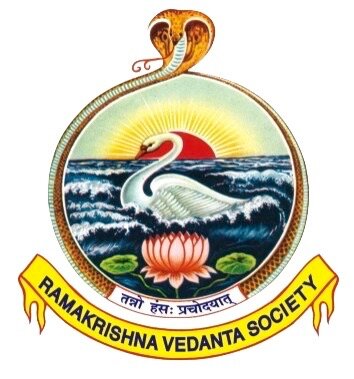Sri Ramakrishna’s nephew, Hriday, once asked Sambhu Mallick for money. Sambhu told him that he would have given him some if Hriday were blind or lame or extremely poor, but he was none of that. Hriday’s response? “Please don’t say that. I don’t need your money.” Hriday needed the rebuke from Sambhu to become aware and grateful that he didn’t need to beg since he was healthy and strong.
Sometimes we need experiences like Hriday’s to become conscious of the many blessings that we simply take for granted and never recognize them as such. If we don’t recognize the value of what we already have, it is easy to ignore it or fritter it away carelessly.
In Vivekacūḍāmaṇi (verse 3), Śrī Śaṅkarācārya refers to three blessings that are “rare”:
दुर्लभं त्रयमेवैतद्देवानुग्रहहेतुकम् । मनुष्यत्वं मुमुक्षुत्वं महापुरुषसंश्रय: ॥
Durlabhaṁ trayam eva etad devānugraha-hetukam,
Manuṣyatvaṁ mumukṣutvaṁ mahapuruṣa-saṁśrayaḥ.
“The following three are rare and are acquired only through God’s grace: (1) a human birth, (2) an intense desire to be free, and (3) the guidance of a great soul.”
The first blessing we already have. I don’t imagine anyone other than humans reading this blog. Considering that we could have been born in any of the millions of species known to us (and probably a whole lot more that are unknown), it is indeed a rare occurrence to have been born a human being.
If we are reborn, there is no guarantee that we will again have a human birth anytime soon. What’s wrong with being born as something else, an animal for instance? Nothing wrong really, except that in our human-centric view and understanding of life, we like to think that being born a human is better than being born as something else. The superiority of a human birth feels true to us emotionally and is confirmed by diverse religious texts.
What is even more rare is not only human birth but, along with it, also a deep longing to be free from all material fetters. Among the billions of human beings on the planet, a very small minority is blessed with that kind of intense longing. If we identify ourselves as spiritual seekers, we may be able to locate that longing in our own hearts. The intensity of it may vary from one person to the next, but to have this longing is another result of God’s grace. There can be no hope of attaining spiritual freedom (mokṣa) unless we truly long for it. Why would I want to eat food if I am not hungry for it?
Alongside a human birth and the intense desire for mokṣa, if I have the guidance of an illumined soul, then I really have no excuse for not using all of these blessings to attain the ultimate goal of life. We may not always realize how few people really have the privilege of easy access to authentic spiritual help. The internet and books have made it a bit convenient in recent years to get help, but (as Swami Vivekananda pointed out) the quickening impulse to awaken us to spiritual life can come only “from another soul, and from nothing else” (CW 3. 45).
These three then—a human birth, longing for spiritual freedom, and the guidance of an illumined soul—are the rare blessings that come only through the grace of God. If we have these, and yet don’t make any serious effort to use the gifts well, we are hurting ourselves more than someone who commits suicide (Vivekacūḍāmaṇi, verse 4).
On the other hand, if we use the gifts well and to the best of our ability, no matter how imperfect our efforts may be, we will find that an unseen power lifts us up and guides us to our spiritual destiny. That is grace. We don’t know how it comes, when it comes, even why it comes. But grace does come when we are sincere and earnest about spiritual life and willing to give our best to reach the goal.

